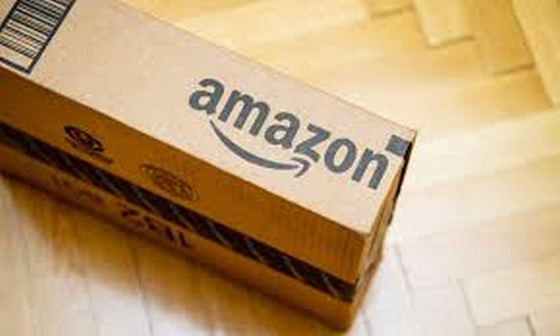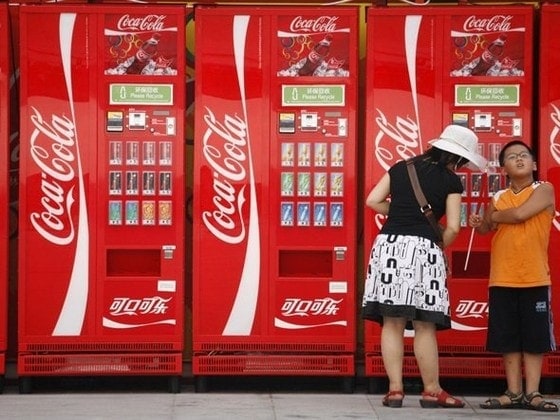We recently had a look at the different kinds of retail services that exist. A general definition of retail is the use of a retail space to display products and sell. We look at various retail outlets in our day to day life when we visit malls, supermarkets or hypermarkets. However, if there is no retail space to sell, and the sale is happening directly to the end customer without the use of a retail space, then it is known as Non-Store Retailing
Table of Contents
What is Non-Store Retailing?
Any sale happening to the end customer which is not happening through a traditional retail channel or through a physical retail space is known as Non-store retailing. Amazon is a perfect example of Non-store retailing. Amazon does not have its own retail space from where it sells the goods to customers. It directly sells from its website and does not sell via a retail space. Hence, it is known as a Non-Store Retailer.
There are different types of Non-store retailers in the market. Some of the non-store retailers are very popular even today whereas others have died down. Let us make it clear that non-store retailing does not mean an average line of business. In fact, Non-store retailing is rising in importance due to the fact that cost of establishment is very low and all expenses are variable and not fixed. We will discuss the benefits of Non-store retailing in some time.
The Three Prominent types of Non-Store Retailing
1) Direct Sales
Did you know how rapidly non-store retailing is expanding?
Global e-commerce sales are projected to reach $6.3 trillion in 2023, reflecting the significant growth of non-store retailing worldwide. This surge highlights the shift in consumer behavior towards online shopping platforms. (Source: Statista)
Moreover, mobile commerce is expected to account for 72.9% of all e-commerce sales by the end of 2023, emphasizing the importance of mobile-friendly retail channels in today’s market. (Source: eMarketer)
One of the oldest forms of non-store retailing is the Direct sales type. The best way to describe this would be Door to Door salesmen who do cold calls to homes and offices to sell their products. They might also do other activities like Standees, promotions, and others to directly sell to the end customer.
This type of non-store retailing involves manual involvement and might involve usage of good selling techniques and personal selling skills. A door to door selling is used for selling technical equipment like Air Conditioners, Vacuum cleaners, Water purifiers and others.Even religious books are nowadays sold door to door. The advantage of this technique is that it is a quick closure type of sale. You will close the sale in 1 or maximum two visits.
The direct sale is a type of non-store retailing which is falling in usage. There are only somewhere it is still applicable. FMCG and Consumer durables are using it to some extent but it is almost absent in other industries. One of the reason is the noise in the market due to continuous advertisement because of which customers are irritated. The second is the growing sense of insecurity and the need for privacy due to which many salesmen are not allowed to enter into societies.
Amway, Tupperware and several other multi-level marketing firms actually use direct selling to good effect. They have chains of distributors and end sellers who sell to the end customers. Because the end seller generally knows the end buyer very well, the sale is high and these companies are case studies in the world of direct selling or non-store retailing.
2) Direct Marketing
Unlike Direct selling, Direct marketing is on the rise especially since the adoption of the internet. It was initially used in the form of direct mail services where letters and coupons were sent to the end customer. Later on, once internet started, Email marketing was very successfully used where companies spent a huge amount of designing and sending emails to a large number of customers.
After emails, it went to websites and we could see Amazon, eBay, Alibaba and other websites grow and sell products by the truckloads. None of these sellers had a single store. All of it was online. Finally today, we can see that even small businessmen have their online store and a website and they sell their products not only through a physical presence but regularly take part in non-store retailing via social media or via their own websites.
Direct marketing is a segment which is supposed to grow even more over the years. Whatsapp has penetrated the market to a great extent and there are many “Whatsapp stores” opening up where you can get fashion apparels at a good discount. Already Amazon has surpassed Walmart in terms of its valuation and we see more and more online stores rising up. In fact, traditional retail is now afraid of the powers of direct marketing via the internet.
3) Automatic Vending
If websites can be used for a large variety of products, then what is the 24×7 salesman for the FMCG sector? Well, it is the Automatic vending machine. If you are right now in your office, you probably have a machine by Café Coffee day or Nescafe which is vending tea or coffee for you. It might be a normal cup of coffee for u, but it is a unit of sale for Nescafe or Café Coffee Day.
Automatic vending machines are being used very smartly in the FMCG segment. We recently wrote an article on the top coffee brands and if you look at that article, you will find brands like Nespresso which are pushing their coffee vending machines into the market because once these vending machines are placed, the sale of coffee to the end customer becomes easier and it is higher in margins because there is no middleman involved.
Similarly, Cold Drink, Newspaper, Beer, Chewing gums, chocolates and even pizza is nowadays sold through an automatic vending machine. These are just straightforward examples of non-store retailing where you don’t need a store of 200 square feet to sell a pizza or cold drinks. Automatic vending has now become a prominent business model in FMCG and is being innovatively adopted in other sectors as well.
Besides the above three type – there is also the use of buying services in the form of a non-store retailer. The best example of this is an existing rate contract between government agencies and a seller who can sell products of a company. Because of the rate contract, the government agencies have to buy only from that seller and only at the given price. The seller, in turn, has to deliver the machine to all locations of the government agency.
However, because buying services as a model of non-store retailing is used very less, and because of the vast penetration of internet in our laptops and smartphones, buying services are now considered almost a part of direct marketing. Because practically everything happens online now.
Benefits of Non-Store retailing
There are several benefits of Non-store retailing
- The cost of establishment is less – The cost of starting a website is always lesser then starting an offline retail outlet.
- Costs are variable in nature – While traditional retail has many fixed costs like rent, salaries etc, the costs of non-store retailing are variable and keep changing.
- Scaling up Is easier – Since the usage of internet for non-store retailing, scaling up of a non-store retailing business is easier than store retailing.
The above was the complete description of Non-store retailing. Do leave your questions in the comment below if any.
Liked this post? Check out the complete series on Retailing



I mostly like your discussion about non store retailing…. thank you… it’s helping me….